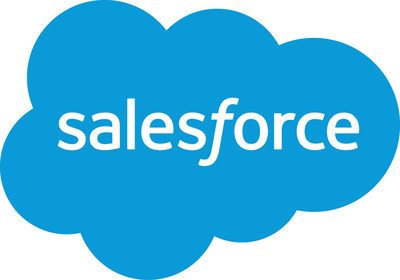Nevada Department of Health and Human Services Builds Naloxone Virtual Dispensary with Salesforce to Combat the Opioid Crisis
Salesforce (NYSE: CRM) announced the launch of the Naloxone Virtual Dispensary by the Nevada Department of Health and Human Services to combat the opioid crisis. This application tracks naloxone supply and enables efficient management of federally appropriated funds. Since its deployment, over 11,861 naloxone kits have been dispensed, along with 4,942 kits to first responders and 856 overdose reversals reported. The initiative aims to improve community health amidst rising opioid overdose rates exacerbated by the COVID-19 pandemic.
- Deployment of the Naloxone Virtual Dispensary enhances naloxone distribution efficiency.
- Over 11,861 kits dispensed to community-based organizations, indicating significant usage.
- Provides critical data on naloxone usage and overdose reversals for better community health insights.
- None.
Insights
Analyzing...
SAN FRANCISCO and CARSON CITY, Nev., Aug. 31, 2020 /PRNewswire/ -- Salesforce (NYSE: CRM), the global leader in CRM, today announced that the Nevada Department of Health and Human Services (DHHS) launched its Naloxone Virtual Dispensary, an inventory management application built on the Salesforce Platform that tracks the state's supply of naloxone, the opioid overdose antidote, at both the funding and distribution level.
The opioid crisis is one of the most pervasive public health challenges that our country has ever faced. Over the last decade, 4,067 Nevadans have died from opioid overdose, with 357 in 2019 alone. And while overdose deaths from prescription opioid medications are declining, deaths from heroin and fentanyl are climbing rapidly.
The current COVID-19 pandemic has exacerbated this widespread issue. The combination of many external factors—including limited access to non-urgent medical care, record unemployment, and other economic-led circumstances—have increased the risk for opioid overdoses throughout the U.S. Today, states are struggling to ensure naloxone is readily available in communities that need it.
In order to rapidly distribute naloxone and responsibly manage and report on federally appropriated funds and taxpayer dollars used to purchase it, Nevada DHHS deployed the Naloxone Virtual Dispensary. The app provides visibility and data on naloxone usage and patterns across Nevada, freeing up time for DHHS staff to focus on other business-critical activities, such as training.
The Naloxone Virtual Dispensary allows DHHS to redistribute naloxone to other community-based organizations based on supply and demand, creating a flexible statewide inventory management system. The app also enables DHHS to track and analyze data regarding overdose reversals through voluntary information provided by individuals seeking doses of naloxone. This anonymous, aggregated data provides critical context to program administrators looking to understand what is occurring across communities and how naloxone is being used.
"Since deploying our Naloxone Virtual Dispensary app, we've dispensed 11,861 naloxone kits to community-based organizations, provided an additional 4,942 naloxone kits to first responder agencies, and have had 856 reports of overdose reversals," said Dr. Stephanie Woodard, Psy.D., DHHS Senior Advisor on Behavioral Health, State of Nevada. "The creative use of technology to support the distribution and monitoring of naloxone has enabled us to be more responsive to the rapidly evolving crisis happening in our communities and ultimately save more lives."
"At Salesforce, we believe that doing well and doing good go hand in hand. We are humbled and honored that our Platform is playing such a pivotal role in helping the State of Nevada navigate this unprecedented health care crisis," said Rob Stein, Senior Vice President, North America Public Sector, Salesforce. "DHHS is setting an example for how other agencies can take real, meaningful steps toward improving the health and well-being of their communities."
Read the full case study here: sfdc.co/NVDHHS. Learn more in our upcoming webinar.
About Nevada Department of Health and Human Services
The Nevada Department of Health and Human Services (DHHS) promotes the health and well-being of its residents through the delivery or facilitation of a multitude of essential services to ensure families are strengthened, public health is protected, and individuals achieve their highest level of self-sufficiency. The Department is the largest in state government, comprised of five Divisions along with additional programs and offices overseen by the DHHS' Director's Office. For more information, visit: http://dhhs.nv.gov/
About Salesforce
Salesforce is the global leader in Customer Relationship Management (CRM), bringing companies closer to their customers in the digital age. Founded in 1999, Salesforce enables companies of every size and industry to take advantage of powerful technologies—cloud, mobile, social, internet of things, artificial intelligence, voice and blockchain—to create a 360° view of their customers. For more information about Salesforce (NYSE: CRM), visit: www.salesforce.com.
Any unreleased services or features referenced in this or other press releases or public statements are not currently available and may not be delivered on time or at all. Customers who purchase Salesforce applications should make their purchase decisions based upon features that are currently available. Salesforce has headquarters in San Francisco, with offices in Europe and Asia, and trades on the New York Stock Exchange under the ticker symbol "CRM." For more information please visit https://www.salesforce.com, or call 1-800-NO-SOFTWARE.
![]() View original content to download multimedia:http://www.prnewswire.com/news-releases/nevada-department-of-health-and-human-services-builds-naloxone-virtual-dispensary-with-salesforce-to-combat-the-opioid-crisis-301120814.html
View original content to download multimedia:http://www.prnewswire.com/news-releases/nevada-department-of-health-and-human-services-builds-naloxone-virtual-dispensary-with-salesforce-to-combat-the-opioid-crisis-301120814.html
SOURCE Salesforce








